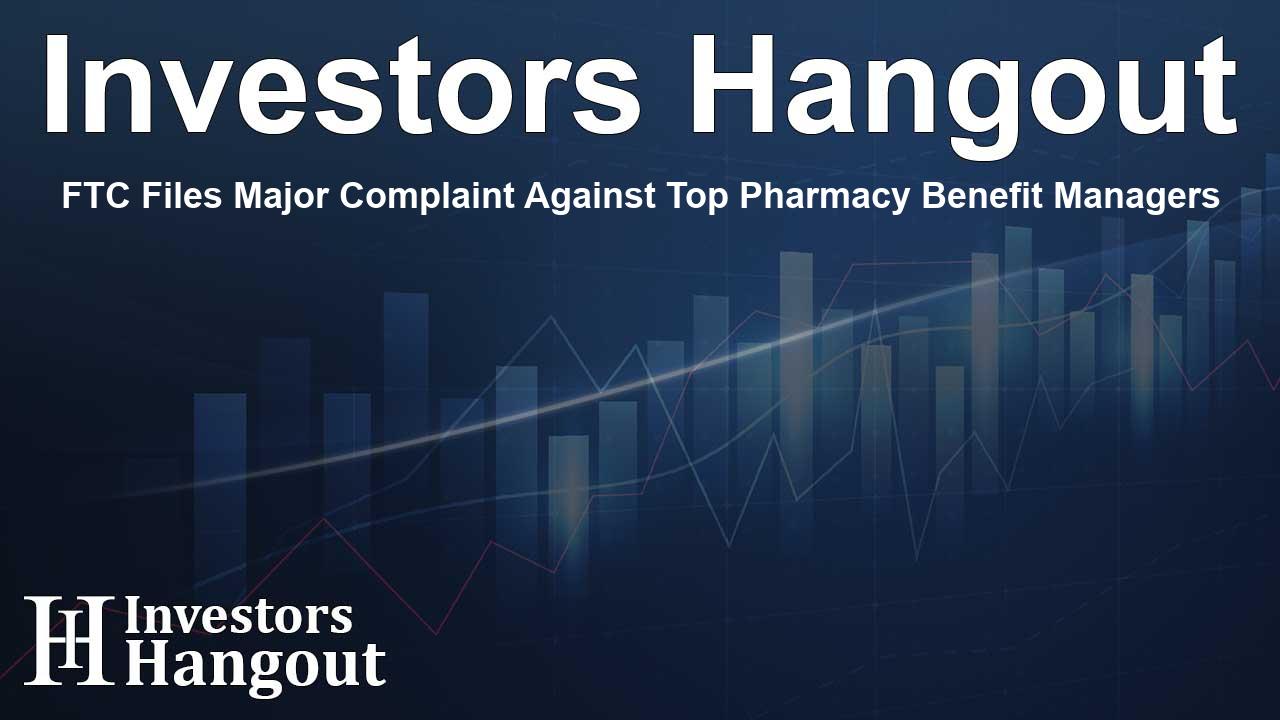FTC Files Major Complaint Against Top Pharmacy Benefit Managers

FTC's Complaint Against Pharmacy Benefit Managers
Recently, the Federal Trade Commission (FTC) took significant steps to address concerns over rising insulin prices by filing a formal complaint against three major pharmacy benefit managers (PBMs): CVS Health Inc’s Caremark, Cigna Corp’s Express Scripts, and UnitedHealth Group Inc’s Optum. The allegation is that these companies have engaged in unfair, anti-competitive practices that have led to inflated prices for life-saving insulin medications.
Allegations of Unfair Practices
The FTC's complaint highlights how these PBMs have created a financial system that benefits them disproportionately, prioritizing drug rebates that often lead to heightened costs for patients. This situation is notably troubling given that these PBMs manage approximately 80% of prescriptions in the United States, gaining substantial control over drug pricing.
Impact on Patients
The practices employed by the Big Three PBMs have significant consequences for patients, especially those in vulnerable situations. Many patients face higher out-of-pocket costs for essential diabetes medications because PBMs have tended to favor higher-priced drugs to benefit from lucrative rebate arrangements with manufacturers.
Inflated Insulin Prices: A Closer Look
The FTC claims that inflated insulin prices are a direct result of these PBMs' rebate-driven system, which not only prioritizes profits but also excludes lower-cost insulin options from formularies. This exclusion forces many patients to pay more, exacerbating economic hardships for those managing diabetes.
Historical Price Changes
Consider the example of Eli Lilly And Co’s Humalog, which saw its list price surge from just $21 in 1999 to an astounding $274 in 2017. Despite the presence of lower-priced alternatives, the allure of higher rebates has led PBMs to recommend more expensive options, resulting in greater financial strain for patients who need these medications.
Scrutiny of Drug Manufacturers
The FTC is not only focusing on PBMs but is also closely examining the role of drug manufacturers, including Eli Lilly, Novo Nordisk A/S, and Sanofi SA, regarding their impact on insulin pricing. Potential further action may be forthcoming against these companies as the investigation unfolds.
Consequences for Patients
This rebate-influenced pricing model has enabled the Big Three PBMs to retain substantial revenues via rebates and fees, which ultimately detracts from patient care. Patients who have high deductibles or encounter coinsurance are especially affected, typically facing costs that exceed what insurers pay overall for these essential medications.
Current Market Reactions
In the aftermath of the FTC’s complaint, stock prices for the involved companies reflected a slight change. CVS Health's stock was noted to have decreased by 1.61%, landing at $57.49, while UnitedHealth Group's stock dipped by 0.29%, settling at $575.39. Interestingly, Cigna Corp’s stock saw a minor increase of 0.07%, standing at $357.52.
Frequently Asked Questions
What is the FTC's complaint about?
The FTC has accused leading pharmacy benefit managers of engaging in practices that inflate insulin prices, harming patient access to necessary medications.
How do PBMs impact medication prices?
Pharmacy benefit managers influence medication prices by controlling which drugs are included in insurance formularies and prioritizing rebates, often leading to higher costs for patients.
Which drug manufacturers are under scrutiny?
The FTC is examining several manufacturers, including Eli Lilly, Novo Nordisk, and Sanofi, regarding their roles in insulin pricing strategies.
What are the consequences for patients?
Patients, particularly those with high deductibles, are facing increased out-of-pocket expenses for insulin due to this rebate-driven pricing model.
What has been the stock market reaction?
Following the FTC’s legal actions, stock prices for CVS Health, UnitedHealth Group, and Cigna Corp reflected minor changes, with CVS and UnitedHealth's stocks declining slightly but Cigna's stock rising.
About The Author
Contact Henry Turner privately here. Or send an email with ATTN: Henry Turner as the subject to contact@investorshangout.com.
About Investors Hangout
Investors Hangout is a leading online stock forum for financial discussion and learning, offering a wide range of free tools and resources. It draws in traders of all levels, who exchange market knowledge, investigate trading tactics, and keep an eye on industry developments in real time. Featuring financial articles, stock message boards, quotes, charts, company profiles, and live news updates. Through cooperative learning and a wealth of informational resources, it helps users from novices creating their first portfolios to experts honing their techniques. Join Investors Hangout today: https://investorshangout.com/
The content of this article is based on factual, publicly available information and does not represent legal, financial, or investment advice. Investors Hangout does not offer financial advice, and the author is not a licensed financial advisor. Consult a qualified advisor before making any financial or investment decisions based on this article. This article should not be considered advice to purchase, sell, or hold any securities or other investments. If any of the material provided here is inaccurate, please contact us for corrections.
